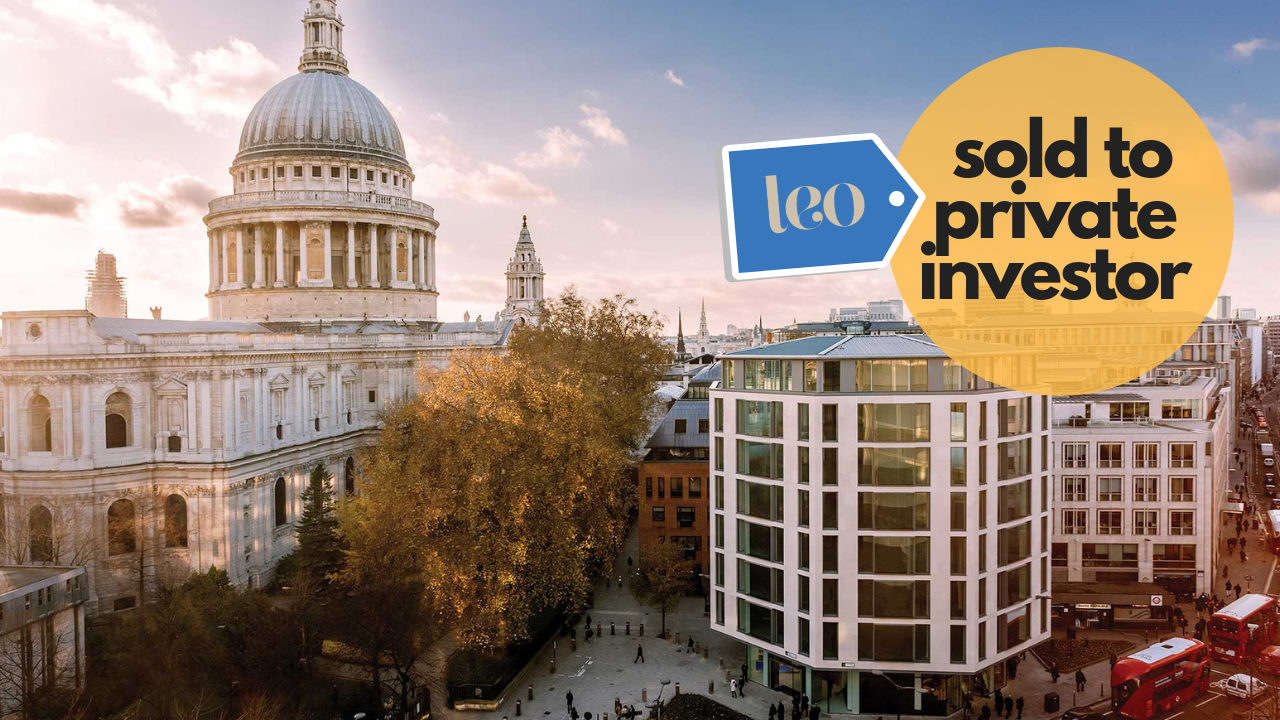- London Executive Offices (LEO) has been acquired by a private investor
- According to external sources, the company has been sold for £475 million
- LEO was put on the market in 2016 but failed to reach its £700m asking price
London Executive Offices (LEO), which operates 38 flexible workspaces in Central London, has been acquired “in its entirety” for an undisclosed sum by a private investor.
Confirming the sale in a press statement, Jason Leek, Chief Executive of LEO, commented:
“This is the beginning of a new and extremely exciting era for LEO and its clients.
“As demand for flexible workspace continues to grow in the UK, LEO has gone from strength to strength. LEO has done this by responding to the needs of modern occupiers, focusing on the quality of our locations and excellent customer service.
“With a supportive new owner, LEO will remain a strong and independent business committed to investing in our people and continuing to develop fantastic working environments for our clients.
“This change of ownership has secured a strong future for the LEO business.”
LEO deal falls short of asking price
According to Sky News, controlling shareholder Queensgate Investments has accepted £475 million (approximately $619 million) for LEO. The buyer is an unnamed investor based in southeast Asia.
The deal comes almost two years after LEO was put on the market with a much higher asking price of £700 million.
Despite expectations of a sale last year, including a rumored £600m takeover by the Barclay Brothers’ Ellerman Investments in November, LEO has remained unsold until now. The shortfall is said to be a reflection of the company’s “unrealistic” initial price expectations for LEO rather than declining interest in Central London workspace.
Indeed, despite ongoing uncertainty around Brexit negotiations, the flexible workspace market in Central London continues to grow; Mark Bott from the serviced office branch of Colliers commented last month that there is “huge demand” for flexible space in Central London with some operators going head-to-head on the same buildings. According to Bott, around 5% of the London office market is flexible and it is expected to “double, potentially triple, within the next 20 years.”
However, news of LEO’s price shortfall combined with IWG’s recently rejected takeover offers will raise further questions over why these long-established operators are not attaining anywhere near the multi-billion-dollar investment achieved by US rival WeWork.
Earlier this month, Japanese investor SoftBank Group — which already owns approximately 20% of WeWork — was reportedly in discussions to pump a further $15-20 billion into WeWork and take a majority stake in the company.
WeWork was founded in 2010 and in just 8 years has amassed over 470 locations across the world, with currently 41 in London.
However, the company has been plagued by criticisms that its valuation is massively over-inflated and it faces huge debt risk, particularly in the event of a downturn. Just last month, the Wall Street Journal published an opinion piece in which it named WeWork as one of the companies most likely to fail in an economic downturn.
By comparison, publicly traded company IWG plc, formerly Regus, was founded in 1989 and operates almost 3,300 office locations worldwide. Yet while WeWork boasts a $20+ billion valuation, IWG has been unable to land a buyer willing to pay £2.8 billion ($3.68 billion).
LEO operates in a smaller and more defined niche, focusing on upmarket buildings within Central London. For this reason it cannot be compared directly with either WeWork or IWG, yet questions over the valuation discrepancy remain unanswered.
For its part, LEO was founded in 1998 and operates 38 owned, leased and managed buildings in Central London. It is the largest five-star serviced office company of scale in the UK with over 3,000 clients.
LEO has continued to build its portfolio since it was put on the market two years ago. In May this year LEO agreed to occupy the top two floors (32,000 sq ft) of Park House in Mayfair, leaving the building fully let, and in January 2018 entered a new London market by leasing 13,500 sq ft at 30 Broadwick Street in Soho.
LEO’s purchaser has taken on the LEO business in its entirety, as well as its 260 team members across the portfolio.



 Dr. Gleb Tsipursky – The Office Whisperer
Dr. Gleb Tsipursky – The Office Whisperer Nirit Cohen – WorkFutures
Nirit Cohen – WorkFutures Angela Howard – Culture Expert
Angela Howard – Culture Expert Drew Jones – Design & Innovation
Drew Jones – Design & Innovation Jonathan Price – CRE & Flex Expert
Jonathan Price – CRE & Flex Expert











